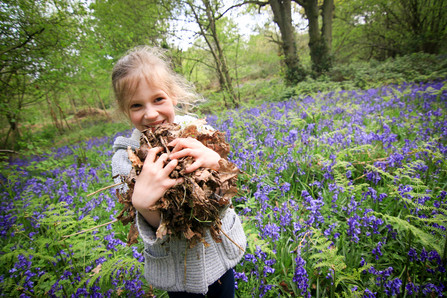People in the UK are living longer. On the face of it, this is good news. This rise in life expectancy, however, is not matched by equivalent levels of good health. For many, it means spending their later years in ill-health and loneliness.
This is a huge challenge for our local and national health services. For example, research by Holt-Lunstad (2015), shows that being lonely is as damaging to our health as smoking 15 cigarettes a day.
Fortunately, many studies show that accessible green spaces can work well as social connectors. Quite simply, they can cut the social and economic costs of ageing alone.
One solution for both problems is London Wildlife Trust’s Potted History project – a programme of nature-based activities that works with older people in the community and in care settings. Each week, a group meets in Peckham where participants grow herbs, fruit and vegetables in raised beds, observe the wildlife of the garden and create art and craft inspired by nature. The activities act as prompts for memories, and participants share their experiences, knowledge and thoughts with others – including recipes, gardening tips and jars of homemade chutney. The effect has been extraordinarily positive.
Participants are happy to get out of the house, learn new things and interact with others. “I was really anxious before coming today, but now I feel really relaxed. It’s nice being outside,” reports one. “Since coming here I’ve managed to give up smoking,” says another. “I was depressed, but now I really look forward to coming here.” Comments like these, alongside other feedback, shows that the London Wildlife Trust project has reduced social isolation. It has given people a regular opportunity to get out of the house, learn new things and interact with others. The experience of being outdoors in nature has also improved their mood and happiness.


